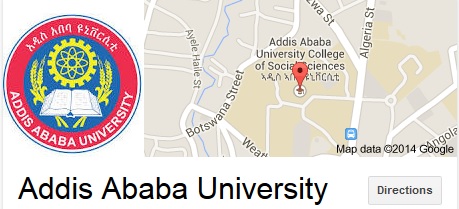AAU gets nearly $1 million grant to improve the safety and quality of milk and dairy products by reducing food borne pathogens prevalence in Ethiopia

Food Safety Experts of Addis Ababa University to Engage in a Research Project that Aims to Improve the Safety and Quality of the Ethiopian Dairy Value Chain
The Center for Food Science and Nutrition of Addis Ababa University has been awarded a grant from the Bill & Melinda Gates Foundation and the UK Department for International Development (“DFID”) for nearly 1 million USD for a project entitled “Ensuring safety and quality of milk and dairy products across the dairy value chain of Ethiopia” (ESQM-DAD). The main objective of the project is to reduce the prevalence of food borne pathogens (FBP) in Ethiopian dairy value chain by identifying major risk factors and providing capacity building trainings for value-chain actors and government stakeholders.
|
Project Title: “Ensuring safety and quality of milk and dairy products across the dairy value chain of Ethiopia” |
|
Project Sponsor: Bill & Melinda Gates Foundation and the UK Department for International Development (DFID). |
|
Project Duration: 4 years (November 01, 2018 – October 31, 2022) |
|
Project Budget: $ 998,227 |
 For the successful completion of this project, the University has created a partnership with two renowned US based universities (Pennsylvania State University and Kansas State University). Moreover, to ensure sustainability of the project objectives beyond the completion of the project, the university has partnered with Dairy Research at Holeta Agricultural Research Center (HARC) of the Ethiopian Institute of Agricultural Research (EIAR).
For the successful completion of this project, the University has created a partnership with two renowned US based universities (Pennsylvania State University and Kansas State University). Moreover, to ensure sustainability of the project objectives beyond the completion of the project, the university has partnered with Dairy Research at Holeta Agricultural Research Center (HARC) of the Ethiopian Institute of Agricultural Research (EIAR).
Background of the project: Food-borne pathogens are the causes of illness and death in developed and developing countries, which resulting in the loss of labor force which could have contributed in the economic growth (Getnet, 2011). Especially the burdens of food borne pathogens are maximum for the poor in developing countries where health care service is limited.
Milk and products derived from milk of dairy cows can harbor a variety of microorganisms and can be important sources of food-borne pathogens. The presence of food-borne pathogens in milk is due to direct contact with contaminated sources in the dairy farm environment and to excretion from the udder of an infected animal. An increasing number of people are consuming raw unpasteurized milk (Shunda et al., 2013). Food-borne disease outbreaks associated with Campylobacter spp., Salmonella spp., shigatoxin-producing Escherichia coli, Brucella melitensis, Mycobacterium bovis and tick-borne encephalitis virus have been traced to the consumption of raw milk, and many other microorganisms that can be present in milk are considered as potential food-borne pathogens to humans.
In Ethiopia, milk and dairy products are integral parts of the diet for many Ethiopians, especially for children. Dairy products are sold either as fresh milk or in fermented forms in the country. More than 68 percent of the total milk produced is used for human consumption in the form of fresh milk, butter, cheese and yogurt while the rest is given to calves and wasted in the process. Therefore, this research project seeks to improve the safety and quality of milk and dairy products across the dairy value chain by reducing the prevalence of FBP which will ultimately increase the availability of safe and quality milk products for consumers.
According to Dr. Ashagrie Zewdu (Principal Investigator), the project will use and apply three techniques to achieve the project objectives. These are:
- Qualitative and quantitative assessments of milk and dairy products for presence of microbiological hazards (Campylobacter, Listeria, Salmonella and coliform/ E.coil) at multiple levels of the dairy value-chain (farm, collection, cooperatives/unions, processing, and retail)
- Review and assessment of current post-harvest food handling/processing practices and identification of efficient and cost-effective mitigation strategies at each level in the value-chain and
- Develop training modules and deliver education/ research methods programs to increase the capacity of food safety management and FBP testing within the milk value-chain actors and Ethiopian stakeholder institutions.
Schematic representation of the overall project experimental design


















 The main Admission Office It is located on the Main Campus (at Sidist Kilo) of Addis Ababa University.
The main Admission Office It is located on the Main Campus (at Sidist Kilo) of Addis Ababa University.








